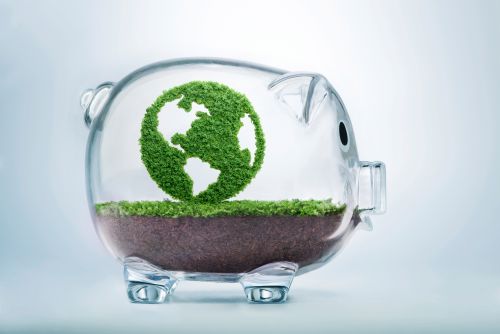
“The financial system will be crucial to supporting and accelerating investment in clean energy and the technologies needed to decarbonise the economy”
Written on 28 Nov 2019.

HOW HAS CLIMATE CHANGE IMPACTED FINANCE AND INVESTORS TO DATE?
The ever-greater damage being done to people and property by climate change and the increasingly stringent climate policies being introduced by governments around the world have prompted the financial sector to pay much greater attention to climate-related issues. New estimates show that climate-change risks to the financial system are even more pervasive than thought: a recent study, for example, shows that European banks’ direct exposure to fossil-fuel companies accounts for “only” 3‒12% of the assets they manage. When you include their indirect exposure, however, that rises to 40‒54%. In other words, the global financial system is exposed to climate-change risks of a similar magnitude to those that caused the global financial crisis. Regulators are growing more and more concerned about this. The Task Force on Climate-related Financial Disclosures (TCFD), established by the Financial Stability Board (FSB), recently recommended that global organizations step up financial disclosure on the potential effects of climate change. Transparency is only the first step, however.
MEMBERS OF THE UNITED NATIONS-CONVENED NET-ZERO ASSET OWNER ALLIANCE HAVE COMMITTED TO REDUCE THE GREENHOUSE GAS EMISSIONS OF THEIR INVESTMENT PORTFOLIOS TO ZERO BY 2050. HOW DO THEY PLAN TO DO THIS?
Large global asset holders are taking action to curb their exposure to climate risk by exercising their voting rights at shareholder meetings and by engaging directly with companies at board level. “Active ownership” deems it the responsibility of long-term investors to question the robustness of financial analysis behind major corporate or institutional investments. By engaging in climate-resilience and transition strategies for highly polluting companies, investors pursuing an active ownership approach can manage their portfolio exposure to climate-change risks and protect the long-term value of their investments. What’s more, there is more sustainability research available, including environmental, social and governance (ESG) performance ratings for companies (and other issuers of securities, such as governments). Investors can use these sustainability ratings or scores when making investment decisions and penalise companies with a bad carbon footprint. Still, while company engagement and sustainability ratings have helped investors to understand and potentially reduce their exposure to environmental risks, the scope, and scale of the problem call for more decisive action.
HOW DO YOU THINK FINANCE CAN POSITIVELY AFFECT CLIMATE CHANGE?
The financial system will be crucial to supporting and accelerating investments in clean energy and the technologies needed to decarbonise the economy. This is why the 196 countries that signed up to the 2016 Paris Agreement committed to “make finance flows consistent with a pathway towards low greenhouse gas emissions and climate-resilient development” in a bid to hold the rise in global average temperatures to well below 2°C above pre-industrial levels. The Intergovernmental Panel on Climate Change estimated in 2018 that those “finance flows” would amount to around USD 2.4 trillion (2.5% of global annual gross domestic product) between 2016 and 2035. This is consistent with the Organisation for Economic Co-operation and Development’s 2017 analysis, which suggested that about USD 103 trillion of additional investment would be required to meet global development needs in a climate-compatible way between 2016 and 2030. Consulting firm McKinsey forecasts similar volumes. All of these estimates imply that a large portion of the global financial system needs to be mobilised to prevent ultimate climatic collapse.

